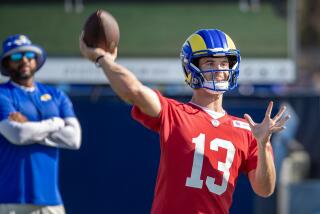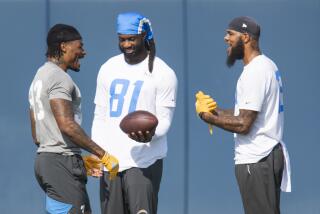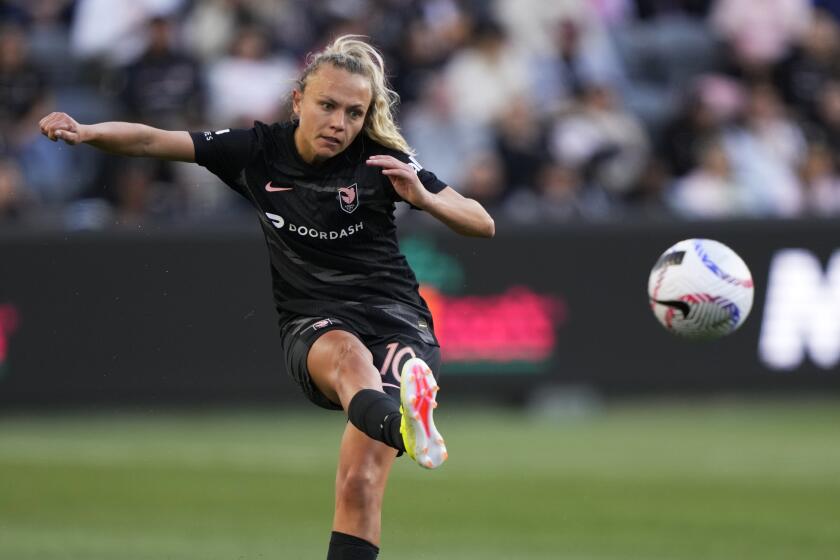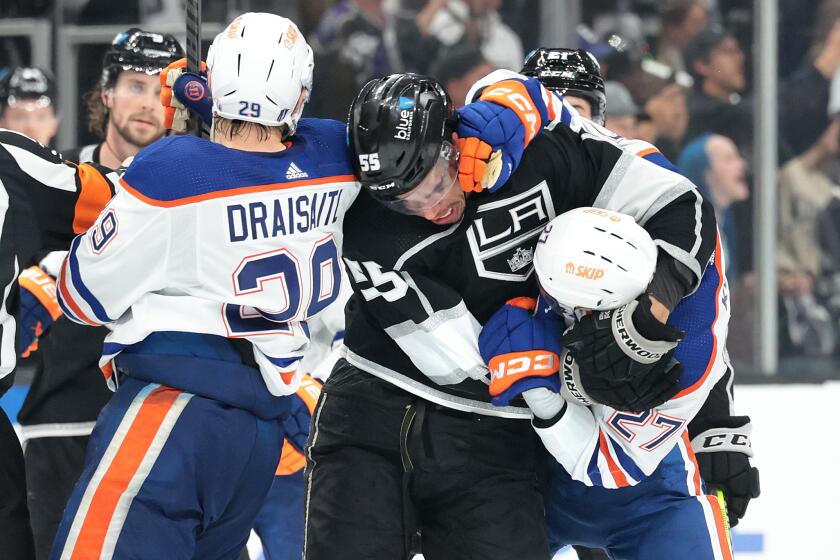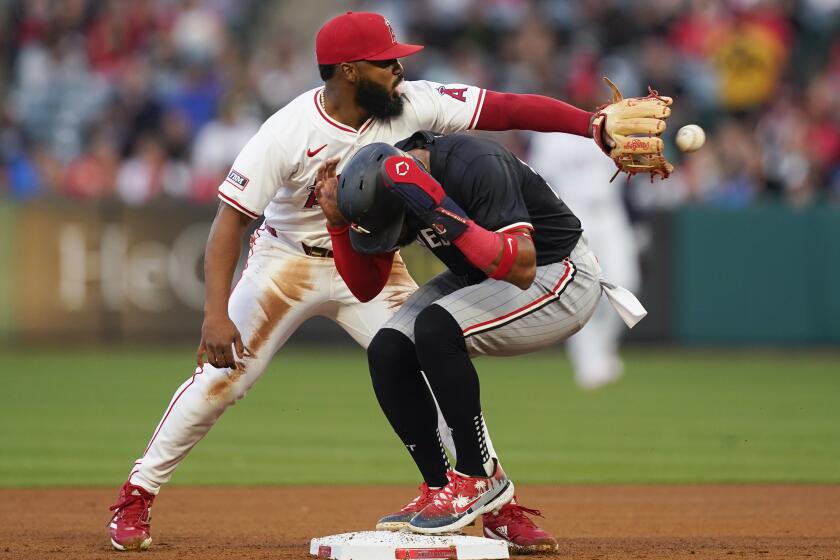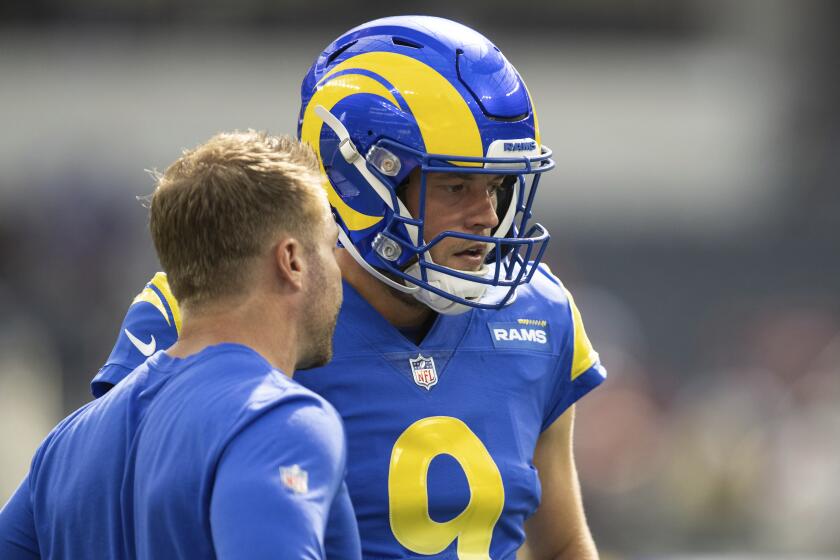Peyton Manning could be out for the season
Indianapolis quarterback Peyton Manning, the NFL’s only four-time most valuable player, underwent another neck surgery Thursday and could sit out the entire season and possibly more.
It was the third neck procedure in 19 months for Manning, 35, who has missed only one play because of injury in 14 seasons. The development is probably crippling to the Colts, who scrambled to sign veteran Kerry Collins two weeks ago and will start him Sunday at Houston.
In a team statement, the Colts called the procedure — anterior cervical fusion surgery — “uneventful” but said rehabilitation from it is “typically an involved process” and did not give a timetable for his return. The Colts plan to keep him on the active roster “until we have a clear picture of his recovery process.”
Before the team announced the surgery had taken place, NFL Commissioner Roger Goodell said the league had been monitoring the situation.
“Peyton isn’t just a great football player, he’s a great man,” Goodell said. “He’s done all the right things on and off the field.
“I’ve been in touch with [the Colts]. I can’t do anything but hope that he gets better quick and gets to a full recovery.”
The procedure was to treat nerve problems that lingered after Manning’s surgery May 23, and the quarterback reportedly had hit a plateau in regaining strength in his triceps. Anterior fusion surgery involves making an incision in the front of the neck, removing the disk tissue between the vertebrae and replacing it with a plastic-like spacer that causes the neighboring vertebrae to fuse together.
Recovery time for such an operation can take at least eight to 10 weeks, and sometimes requires a year or more.
“With professional football players, the neck has to be fully back to strength and healed,” said Dr. Rick Delamarter, medical director of the spine program at Cedars Sinai in Los Angeles. “Even three months could be rushing it.”
Delamarter, who has not treated Manning but has performed neck operations on many NFL players and other professional athletes, said there’s a possibility the Colts could have their star quarterback back by late December or January, but added: “I wouldn’t be at all surprised if they decide to keep him out for the year.”
Asked about the likelihood of this being a career-ending situation, Delamarter said: “That would surprise me. I think there’s a high likelihood that he will recover from this surgery, get back in shape and be able to play again.”
But Manning might not be able to resume his career, Delamarter said, if the injured nerve root doesn’t recover totally. The doctor said the latest procedure gives the root the best chance for recovery, and that operation results in roughly a 10% loss in range of motion.
Delamarter said quarterback is a better position for someone who has undergone a fusion such as Manning’s. But not all spine experts agree with that.
“He’s going to be at risk for an injury from a whiplash-type event, and that injury could potentially mean one to the spinal cord,” said Dr. Ty Thaiyananthan, neurosurgeon and co-medical director of the Chapman Neurosurgical and Spine Institute in Orange. “I think most doctors would keep a very close eye on a patient that would want to go back and play football after an operation like that.”
Neck problems forced the retirement of former NFL quarterback Erik Kramer, who had four bulging disks at the end of his 13-year career. That resulted in nerve damage, weakness in his triceps, and a depressing feeling that his body was betraying him.
“I’ve had knee and shoulder operations, a hernia,” Kramer said. “With those, you don’t feel inherently vulnerable. But when you have an injury to your neck and see your strength start to evaporate, that does something to you.”
Stressing that he knows only what he has read and heard from news reports about Manning, Kramer said he feels empathy for the Colts quarterback.
“It’s a very slow process,” he said. “This isn’t a six-week kind of timetable. This has no timetable. Your nerve regeneration works on its own schedule. You have to lower your expectations.
“It just comes when it comes.”
twitter.com/LATimesfarmer
More to Read
Get our high school sports newsletter
Prep Rally is devoted to the SoCal high school sports experience, bringing you scores, stories and a behind-the-scenes look at what makes prep sports so popular.
You may occasionally receive promotional content from the Los Angeles Times.
